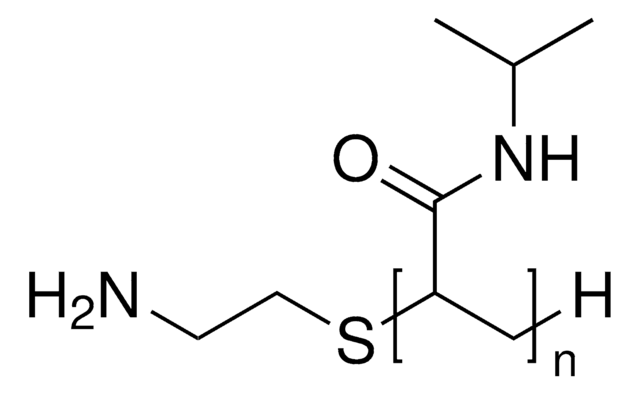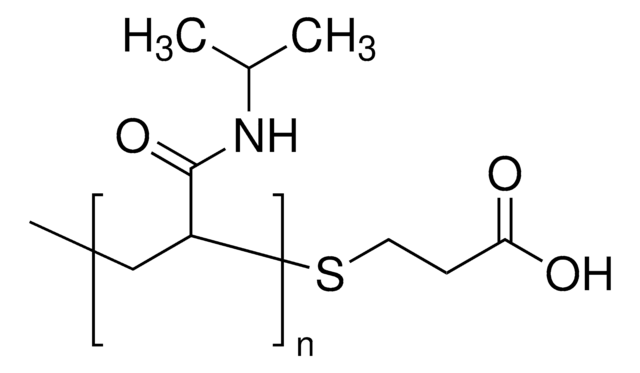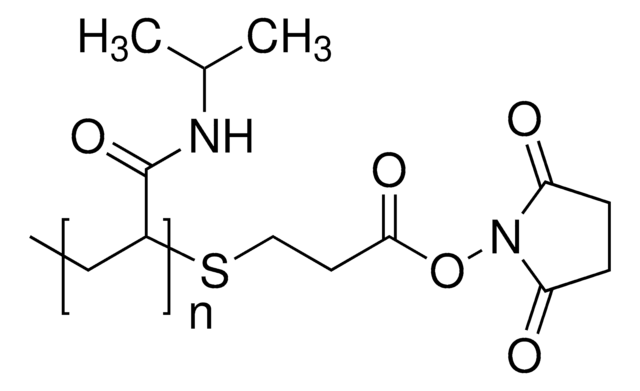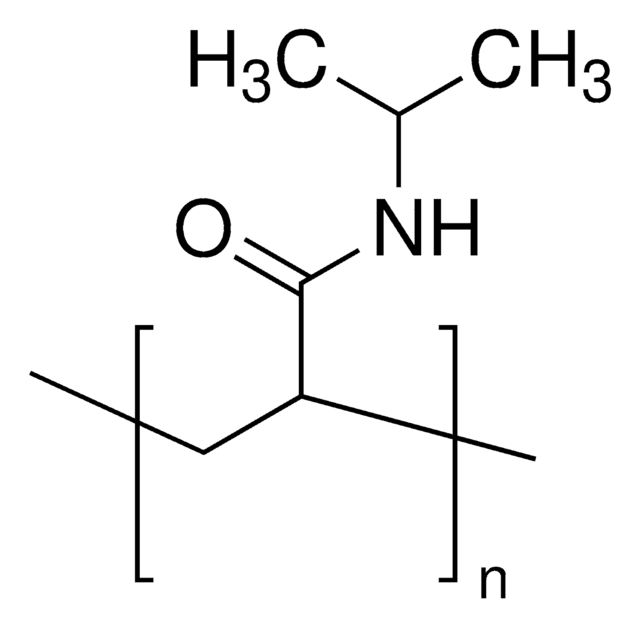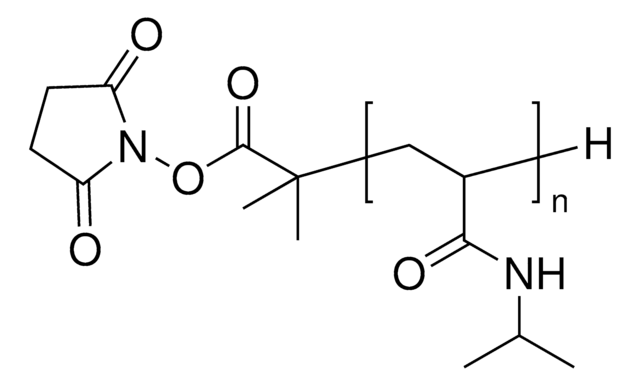Wichtige Dokumente
724815
Poly(N-Isopropylacrylamid), Carboxylsäure-Endgruppe
average Mn 2,000
Synonym(e):
NIPAM-Polymer, PNIPAM-COOH, Polyacrylamid, funktionalisiertes Polyacrylamid, funktionalisiertes polyNIPAM, polyNIPAM
About This Item
Empfohlene Produkte
Suchen Sie nach ähnlichen Produkten? Aufrufen Leitfaden zum Produktvergleich
Anwendung
Lagerklassenschlüssel
11 - Combustible Solids
WGK
WGK 3
Flammpunkt (°F)
Not applicable
Flammpunkt (°C)
Not applicable
Hier finden Sie alle aktuellen Versionen:
Besitzen Sie dieses Produkt bereits?
In der Dokumentenbibliothek finden Sie die Dokumentation zu den Produkten, die Sie kürzlich erworben haben.
Artikel
Poly(N-isopropylacrylamide), or PNIPAM, is a stimuli-responsive polymer that responds to changes in pH and temperature and has a LCST around 32 C.
Tissue engineering has become a key therapeutic tool in the treatment of damaged or diseased organs and tissues, such as blood vessels and urinary bladders.
By altering the physicochemical properties, smart or intelligent drug delivery systems can be designed to deliver therapeutic molecules on-demand. Learn more about the application of stimuli-responsive materials in drug delivery.
Wide range of functional polymers for biomedical applications have been synthesized and structurally characterized. Several classes of polymers including biodegradable polymers, hydrophilic & amphiphilic polymers, and stimuli responsive polymers have been prepared using controlled and directed functionalization via "living" polymerization such as RAFT, ionic and ring opening polymerization. Selected polymers have been studied for their structure-properties relationship. "
Unser Team von Wissenschaftlern verfügt über Erfahrung in allen Forschungsbereichen einschließlich Life Science, Materialwissenschaften, chemischer Synthese, Chromatographie, Analytik und vielen mehr..
Setzen Sie sich mit dem technischen Dienst in Verbindung.